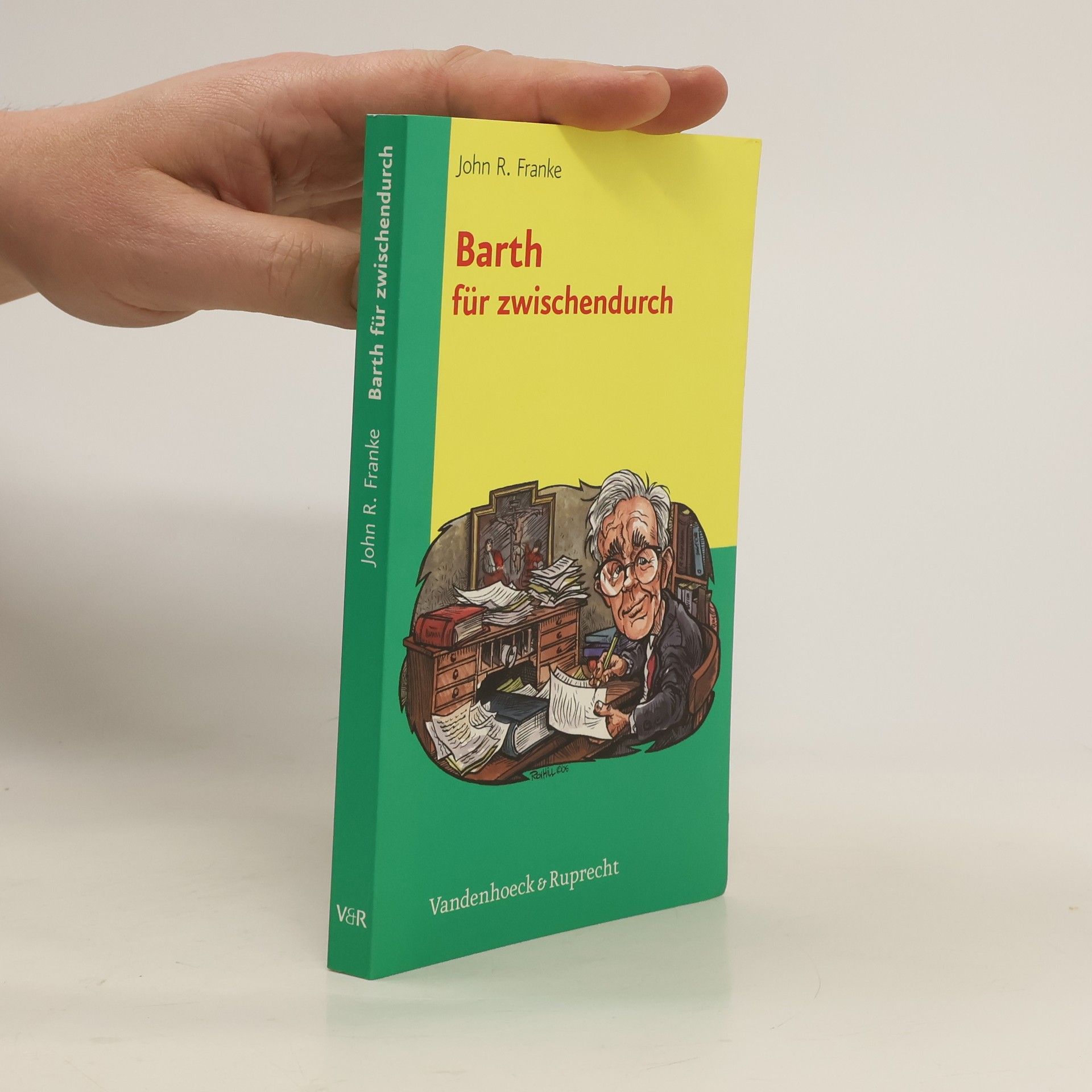Missional Theology
- 192 pages
- 7 hours of reading
Noted theologian John Franke helps readers reenvision theology, showing that it flows from an understanding of the missional character and purposes of God.
John R. Franke delves into Christian theology, approaching it from postconservative and postmodern perspectives. His work engages deeply with theological tradition while simultaneously addressing the challenges of the contemporary world. Franke is associated with the missional church and emerging church movements, exploring the intersection of faith and modern culture. His writing offers insightful reflections on how faith can be practiced in a dynamic and ever-changing global landscape.




Noted theologian John Franke helps readers reenvision theology, showing that it flows from an understanding of the missional character and purposes of God.
Exploring the life and thought of Karl Barth, this volume highlights his significance as a theologian since the Reformation. It provides an overview of his influential work, particularly the Church Dogmatics, while also addressing contemporary interpretations of his theology. The whimsical illustrations characteristic of the Armchair series enhance the reader's engagement with Barth's complex ideas, making them accessible and enjoyable for both newcomers and seasoned theologians alike.
Focusing on missional hermeneutics, this book serves as a foundational introduction to a new subfield of biblical interpretation. It explores the background, development, and methodologies of missional hermeneutics, paralleling the impact of Missional Church on church reimagining. As the inaugural volume in the Studies in Missional Hermeneutics, Theology, and Praxis series, it aims to be an essential resource for both academic study and practical application, making it suitable for classrooms and congregations alike.
Dieses Buch erzählt von der Reise Karl Barths vom Liberalismus zu einer neuen Form der Theologie, die in der Bibel verwurzelt ist, sich aber, ohne beliebig zu wirken, auch der Gegenwart und ihrer Fragen annimmt und das aktuelle Geschehen nicht vergisst. Barths Forschung hat entscheidend zu einem Wechsel in der theologischen Ausrichtung Europas und Nordamerikas beigetragen. Auch heute noch ist sein Werk eine fruchtbare Quelle, um Alternativen zur üblichen liberalen oder auch konservativen Interpretation zu finden. Seine Theologie hat den think tank weltweit beeinflusst. Jedoch scheint Barth der akademischen Welt bekannter zu sein als dem gemeinen Kirchgänger, was möglicherweise am monumentalen Umfang seines Hauptwerkes der 'Kirchlichen Dogmatik' liegen könnte (vielleicht auch daran, dass seine Gedanken komplex und nicht leicht verständlich sind). Auch wenn Barth einen Großteil seines Lebens an der Universität verbrachte, war ihm die Gemeinde doch stets seine wichtigste Hörerschaft. Fielen seine Gedanken dort auf fruchtbaren Boden, traf dies den Kern seiner Motivation, Theologie zu treiben. Christliches Leben sei nur möglich, so Barth, wenn man die biblischen Aussagen mit dem gegenwärtigen Geschehen in Welt und Moderne verbinden könne.